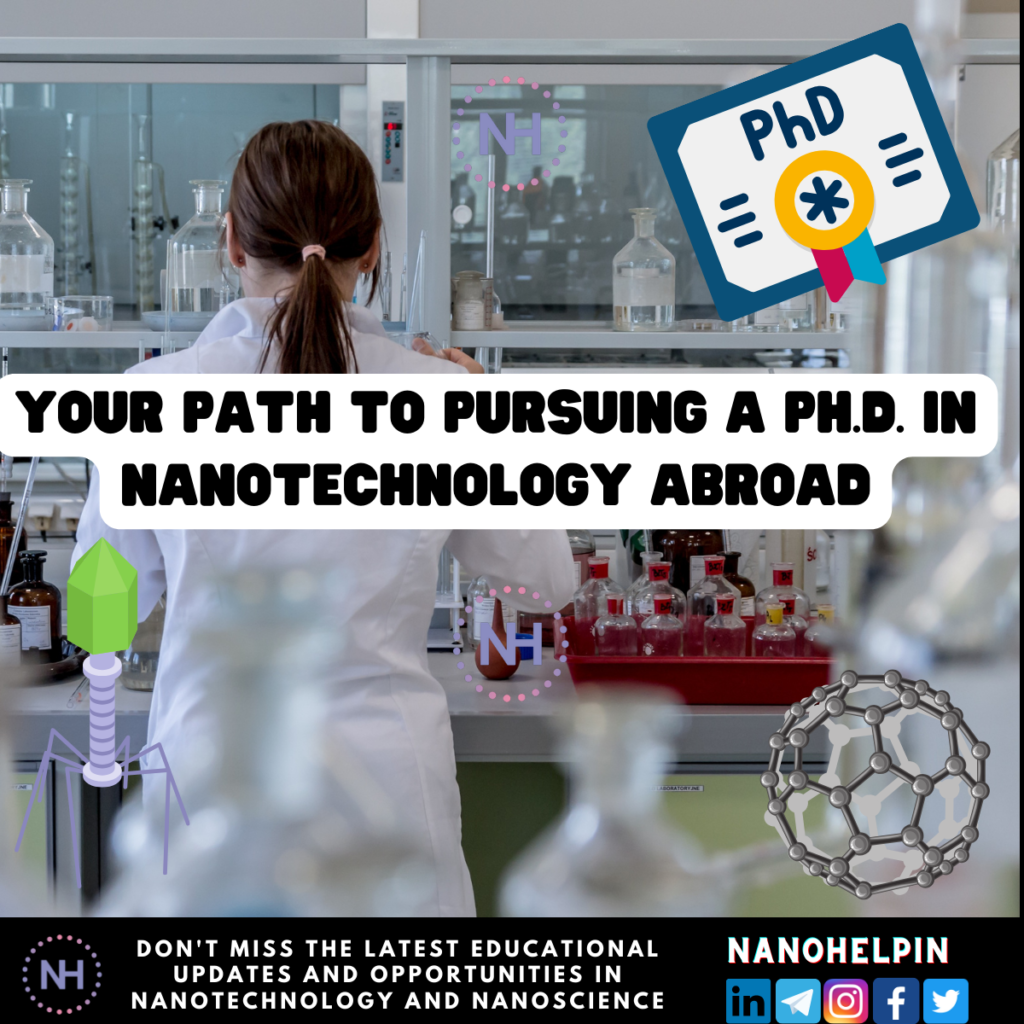
Introduction:
Embarking on a PhD journey in nanotechnology is a remarkable leap into a field at the forefront of scientific and technological innovation. While securing admission at a foreign university might appear daunting, it can be a fulfilling and manageable experience with the right approach. This article will provide invaluable insights on streamlining the process and enhancing your chances of being accepted into a PhD program in nanotechnology abroad.
- Define Your Research Interests:
Before you take the plunge into the admissions process, defining your research interests within the expansive realm of nanotechnology is crucial. You must have a crystal-clear understanding of your intended area of specialization. Nanotechnology encompasses various sub-disciplines, such as nanomaterials, nanoelectronics, nanomedicine, and more. You’ll be better equipped to identify suitable programs and universities by clarifying your research interests. - Conduct Comprehensive Research:
Initiate your journey by thoroughly researching universities and programs that align with your research interests. Seek institutions with a robust reputation in nanotechnology research and those offering PhD programs in your chosen subfield. Explore faculty profiles, ongoing research projects, and available resources to determine if a university aligns with your aspirations. - Build a Strong Academic Foundation:
Nanotechnology Ph.D. programs are highly competitive, so a solid academic foundation is imperative. Maintain an impressive GPA throughout your undergraduate and master’s studies. Pursue relevant nanotechnology, physics, chemistry, biology, and engineering courses to build a well-rounded educational background. - Secure Stellar Letters of Recommendation:
Letters of recommendation are pivotal components of your application. Forging strong relationships with professors and researchers who can endorse your academic abilities and research potential. Your recommenders must be well-acquainted with your work and research interests. - Craft an Outstanding Statement of Purpose:
Your statement of purpose is your canvas to showcase your unwavering passion for nanotechnology and to articulate why you are the ideal candidate for the program. It should be concise, compelling, and specific about your research goals, prior experiences, and why you aspire to pursue a Ph.D. abroad. Tailor your statement to the nuances of each university’s program. - Prepare for Standardized Tests:
Many foreign universities require standardized tests like the GRE or TOEFL/IELTS for international applicants. Adequate preparation and the attainment of high scores on these tests can significantly bolster your chances of admission. - Seek Financial Aid and Scholarships:
Studying abroad can be financially demanding, so explore opportunities for financial aid and scholarships. Numerous universities offer merit-based scholarships for Ph.D. candidates, and external scholarship options exist. Start researching these opportunities early and ensure timely application submissions. - Contact Potential Advisors:
Proactively contact professors and researchers whose work aligns with your research interests. Contacting potential advisors demonstrates your commitment and genuine interest in their research. These connections can provide valuable insights and opportunities during the admission process. - Prepare a Stellar Resume/CV:
Your resume or CV should be a snapshot of your academic achievements, research experience, publications, conference presentations, and relevant skills. Keep it succinct and well-organized to present a compelling case. - Proofread and Review Your Application:
Before submitting your application, meticulously review it for errors or inconsistencies. Seek feedback from mentors, professors, or advisors to ensure your application is polished and persuasive.
Conclusion:
While securing admission to a Ph.D. program in nanotechnology abroad might pose challenges, it can be made more manageable with careful planning and unwavering dedication. By clearly defining your research interests, building a strong academic foundation, and adhering to these best practices, you’ll significantly enhance your prospects of gaining entry into a prestigious program. Remember that tenacity, passion, and thorough preparation will be your greatest allies in pursuing a Ph.D. in nanotechnology abroad. I wish you the best of luck on your academic journey!


